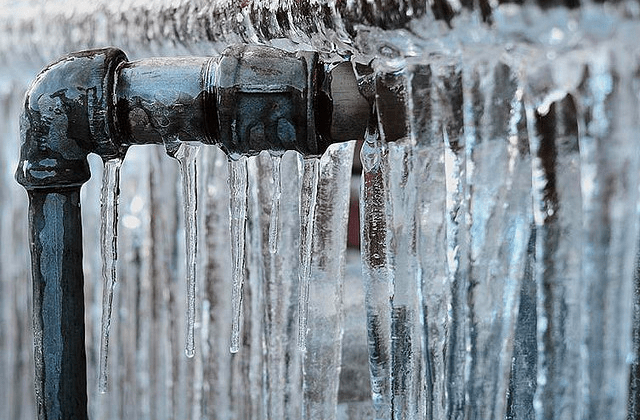Do you find yourself searching for facts and techniques concerning How to Prevent Your Pipes From Freezing?

Winter can wreak havoc on your pipes, particularly by freezing pipelines. Here's exactly how to prevent it from occurring and what to do if it does.
Intro
As temperatures decrease, the risk of frozen pipelines increases, potentially bring about costly repair services and water damages. Understanding exactly how to avoid icy pipes is essential for house owners in cool climates.
Prevention Tips
Insulating prone pipelines
Cover pipelines in insulation sleeves or make use of warmth tape to protect them from freezing temperatures. Focus on pipelines in unheated or exterior locations of the home.
Home heating strategies
Maintain indoor rooms appropriately warmed, specifically locations with plumbing. Open cabinet doors to permit cozy air to distribute around pipes under sinks.
How to identify icy pipes
Search for decreased water circulation from faucets, unusual smells or sounds from pipelines, and noticeable frost on subjected pipelines.
Long-Term Solutions
Architectural modifications
Consider rerouting pipelines away from outside walls or unheated locations. Add added insulation to attics, cellars, and crawl spaces.
Upgrading insulation
Buy top notch insulation for pipes, attic rooms, and walls. Appropriate insulation aids preserve regular temperatures and minimizes the threat of frozen pipelines.
Protecting Outside Pipes
Yard hoses and outside taps
Disconnect and drain garden pipes prior to winter. Set up frost-proof faucets or cover outdoor taps with shielded caps.
Recognizing Icy Pipes
What causes pipelines to ice up?
Pipelines ice up when revealed to temperature levels listed below 32 ° F (0 ° C) for extended durations. As water inside the pipelines ices up, it increases, taxing the pipeline wall surfaces and possibly triggering them to rupture.
Threats and problems
Icy pipelines can bring about water disturbances, property damages, and costly repair work. Burst pipelines can flooding homes and cause extensive architectural damage.
Indicators of Frozen Water Lines
Determining icy pipelines early can prevent them from breaking.
What to Do If Your Pipes Freeze
Immediate activities to take
If you think icy pipes, maintain faucets open up to ease stress as the ice melts. Make use of a hairdryer or towels soaked in warm water to thaw pipelines slowly.
Verdict
Preventing icy pipelines requires positive actions and quick actions. By recognizing the causes, indications, and safety nets, homeowners can safeguard their plumbing throughout winter.
5 Ways to Prevent Frozen Pipes
Drain Outdoor Faucets and Disconnect Hoses
First, close the shut-off valve that controls the flow of water in the pipe to your outdoor faucet. Then, head outside to disconnect and drain your hose and open the outdoor faucet to allow the water to completely drain out of the line. Turn off the faucet when done. Finally, head back to the shut-off valve and drain the remaining water inside the pipe into a bucket or container. Additionally, if you have a home irrigation system, you should consider hiring an expert to clear the system of water each year.
Insulate Pipes
One of the best and most cost-effective methods for preventing frozen water pipes is to wrap your pipes with insulation. This is especially important for areas in your home that aren’t exposed to heat, such as an attic. We suggest using foam sleeves, which can typically be found at your local hardware store.
Keep Heat Running at 65
Your pipes are located inside your walls, and the temperature there is much colder than the rest of the house. To prevent your pipes from freezing, The Insurance Information Institute suggests that you keep your home heated to at least 65 degrees, even when traveling. You may want to invest in smart devices that can keep an eye on the temperature in your home while you’re away.
Leave Water Dripping
Moving water — even a small trickle — can prevent ice from forming inside your pipes. When freezing temps are imminent, start a drip of water from all faucets that serve exposed pipes. Leaving a few faucets running will also help relieve pressure inside the pipes and help prevent a rupture if the water inside freezes.
Open Cupboard Doors
Warm your kitchen and bathroom pipes by opening cupboards and vanities. You should also leave your interior doors ajar to help warm air circulate evenly throughout your home.

I'm very interested in Helpful Tips to Prevent Frozen Pipes this Winter and I hope you enjoyed the entire article. If you appreciated our post plz be sure to share it. We enjoy reading our article about How to Prevent Your Pipes From Freezing.
Call Today